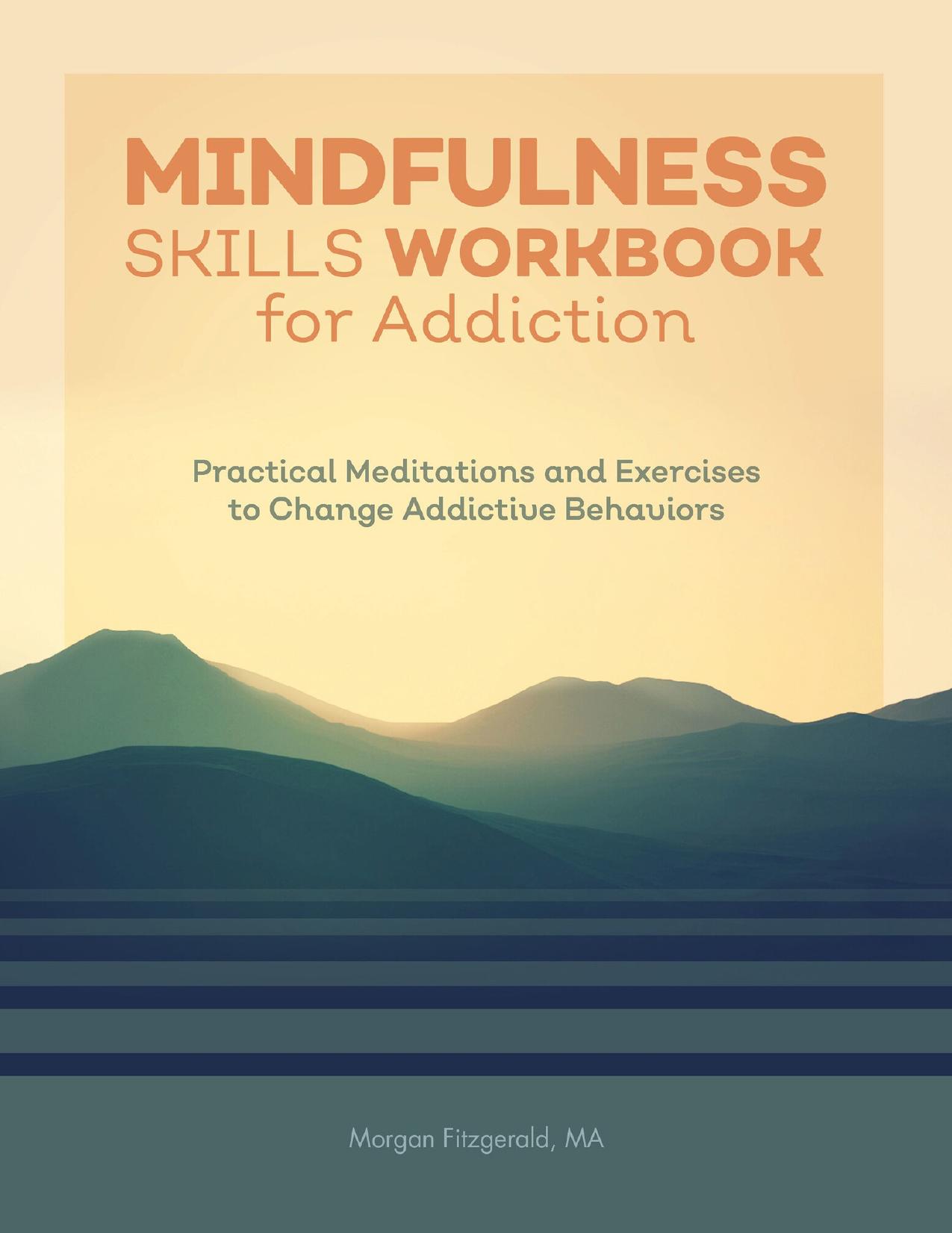Mindfulness Skills Workbook for Addiction: Practical Meditations and Exercises to Change Addictive Behaviors by Fitzgerald MA Morgan

Author:Fitzgerald MA, Morgan [Fitzgerald MA, Morgan]
Language: eng
Format: epub, pdf
Publisher: Rockridge Press
Published: 2020-09-01T00:00:00+00:00
THE MINDFUL WAY
Patience is a virtue, or so they say. Merriam-Webster defines patient as “being able to bear pains or trials calmly or without complaint.” Although a succinct definition, there’s complexity in the beginning phrase: “being able.” Humans as a species have profound resiliency, which allows us to withstand astronomical hardship. The ability to handle what life throws at us is a capacity that’s present for everyone. The difficulty, though, is in accessing that ability. Patience is one of the coping skills that helps us during our pains and trials; by being patient, we are validating our current state instead of acting out against it. But it would be unhealthy to be patient all of the time, as there are many cases when it’s beneficial to take action and make a change. So learning patience is about learning balance.
To fully understand how patience and addiction are connected, let’s review different types of patience. According to psychologist Sarah Schnitker of Baylor University, there are three different kinds of patience:
Interpersonal patience has to do with other people; it helps you deal with their interruptions in your daily life and manage your emotions in the face of their shortcomings. For someone coping with addiction, interactions with other people may serve as triggers for drug use. Another person’s presence may serve as a reminder of negative thoughts and emotions we try to avoid. Without sufficient interpersonal patience, succumbing to the addiction may seem like the only way to get rid of those feelings.
Life-hardship patience is employed when external forces create barriers in our lives that we have to overcome. An eviction notice, or even something ostensibly positive like a new job opportunity, requires us to face new challenges. For someone with an addiction, life-hardship patience is needed to handle the emotional disturbance of these kinds of events, or they’ll feel a need to numb or avoid their feelings using an addictive substance or behavior.
Daily hassle patience describes our tolerance for mundane delays and obstacles that come up in our daily lives and are out of our control. These situations are mostly unavoidable: waiting for a website to load, having to cook dinner before being able to eat, or being put on hold after calling a customer service number. These frequent, small challenges require significant patience because there’s not much we can do to immediately change them. People who are in the throes of an addiction tend not to develop this kind of patience, because they use an addictive substance or behavior as a substitute. Once in recovery, they’ll need to rebuild their atrophied patience skills in order to cope with daily hassles.
It was once thought that lack of patience is simply due to a lack of willpower, but newer research casts that idea in doubt. One study directed by psychology researcher Adrianna Jenkins, PhD, found that we can increase our patience by practicing specific skills. Jenkins found that when these skills are not practiced—as is often the case during addiction—tolerance for obstacles lessens. The
Download
Mindfulness Skills Workbook for Addiction: Practical Meditations and Exercises to Change Addictive Behaviors by Fitzgerald MA Morgan.pdf
This site does not store any files on its server. We only index and link to content provided by other sites. Please contact the content providers to delete copyright contents if any and email us, we'll remove relevant links or contents immediately.
Inner Engineering: A Yogi's Guide to Joy by Sadhguru(6785)
The Power of Now: A Guide to Spiritual Enlightenment by Eckhart Tolle(5749)
Fear by Osho(4727)
Ikigai by Héctor García & Francesc Miralles(4246)
The Art of Happiness by The Dalai Lama(4125)
The Ultimate Bodybuilding Cookbook by Kendall Lou Schmidt(3935)
Yoga Therapy by Mark Stephens(3742)
The Little Book of Hygge by Meik Wiking(3682)
The Healing Self by Deepak Chopra(3568)
Why Buddhism is True by Robert Wright(3446)
The Hatha Yoga Pradipika (Translated) by Svatmarama(3326)
Being Aware of Being Aware by Rupert Spira(3272)
Shift into Freedom by Loch Kelly(3193)
Wild Words from Wild Women by Stephens Autumn(3149)
Work Clean by Dan Charnas(3116)
Happiness by Matthieu Ricard(3040)
More Language of Letting Go: 366 New Daily Meditations by Melody Beattie(3018)
Yoga Body & Mind Handbook by Jasmine Tarkeshi(2874)
Why I Am Not a Feminist by Jessa Crispin(2748)
